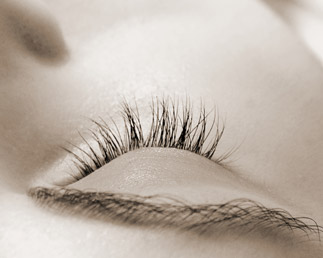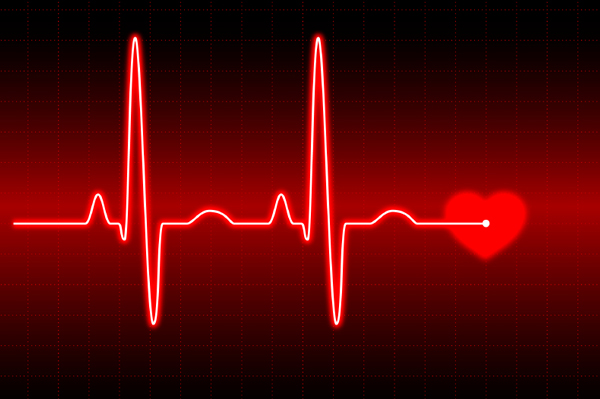 Sleep plays an important role in our overall health including heart, blood pressure, brain function organization and metabolism.
Sleep plays an important role in our overall health including heart, blood pressure, brain function organization and metabolism.
Sleep Apnea is a sleep disorder than affects breathing and oxygen levels during sleep. It is a life-threatening disorder that should be taken as seriously as any other health related issue.
Losing weight does help improve the symptoms of sleep apnea. It reduces snoring, improves the severity and frequency of our sleep apnea episodes; but it is not considered a cure for sleep apnea.
Your CPAP machine is a physician prescribed devise that helps keep your airway open and should not be discontinued until you have been retested. Retesting is simple and important for weight loss, keeping it off and our overall health. Sleep well !
it's time to wake up...
 Being tested for sleep apnea is not just busy work or just one of the hoops you jump through in preparation for weight loss surgery. It's serious business.
Being tested for sleep apnea is not just busy work or just one of the hoops you jump through in preparation for weight loss surgery. It's serious business.
It's not just one of those things you have to do...it has a purpose.
Speaking friend to friend...If you have been diagnosed with sleep apnea and have been given a prescription for a CPAP machine to sleep, there are facts you should know.
If you were diagnosed with sleep apnea and are not wearing your CPAP machine for any reason, except for a re-test that medically proves you are cured...it's time to wake up.
I am sincerely not trying to be rude...
it's just the fact...it's life or death, and I'm passionate about life and weight loss surgery success.
There are things you should know...first:
There are Different Types of Sleep Apnea
Do you have OSA or CSA or both? There are basically two types of sleep apnea. The most common type is 'obstructive sleep apnea' (OSA), and the less common type is 'central sleep apnea' (CSA). The third not so common type is 'mixed sleep apnea' which is basically a combination of OSA and CSA.
OSA or obstructive sleep apnea is caused by the relaxation and collapsing of the soft tissue at the back of the throat which blocks the passage of air into the lungs.
CSA is a brain related condition and is caused when the brain sends irregular signals to the muscles that control breathing. It has nothing to do with weight loss.
Research has now found that repeated surges and drops in blood pressure and low oxygen levels eventually impair the body's ability to regulate blood flow to the brain.
Researchers also warn that sleep apnea may occur over a long period of time before they becomes aware of it and seeks medical treatment.
I Didn't Know...
I was diagnosed with sleep apnea two years before I ever considered weight loss surgery. I had no idea I had it. I attended a conference once where several friends shared a room for the night. One of the ladies told me the next morning that I stopped breathing during the night. Since she and I were sleep across the room from each other I dismissed it as, well, she probably just couldn't hear me. Then I asked my husband to listen to me breathe when I was asleep. He didn't think I stopped breathing, so I dismissed it again. Then I invited six girls to the beach for the weekend...no one could sleep with me...or in the house...my husband was right about one thing, I did snore, loudly...I was in denial. That was until several years later when I couldn't make up the bed without feeling like I had run a marathon.
I finally submitted to calling for an appointment to get checked out and sure enough I was diagnosed with sleep apnea.
It was only after getting a CPAP machine that I realized how bad I really did feel. I had blamed a lot of it on just being overweight. Chances are I had it before I became severly overweight, maybe it even added to the problem. Sleep deprivation affects your metabolism and your energy level, ability to concentrate as well as other health issues such as heart attack and high blood pressure.
After losing weight I could not handle the pressure of my CPAP and thought I was "cured". So I took myself off my machine and was sleeping pretty well...so I thought! After a period of time, I realized I was waking up tired and with headaches. So I was re-tested with a CPAP machine which you can do at home. You do not have to be re-tested at a sleep clinic. You just bring the machine home and sleep with it for about a week and return it for the results. You should know within a few days.
The machine adjusted and measured the pressure I needed to determine that I still had sleep apnea. I didn't realize how many times my sleep was being disturbed until I now try to sleep without it. The machine I have now, adjusted the pressure I need. Even though I do not have sleep apnea as severly as I did before I do still have it and I do still need a CPAP machine to sleep, but only if I want to breathe...just kidding...
but really, it's no joking matter, it's serious...
Here are my points:
1. I know by experience with the machine and without it that it does affect my quality of sleep, the way I feel during the day and also affects my weight.
2. If you have been told you have sleep apnea don't just take yourself off the CPAP machine. It is a prescribed device that affects your health just like taking a prescription medication, which you wouldn't take yourself off without a doctor recommendation. Please get retested. It's easy.
3. If you have sleep apnea, sleep with your CPAP machine. I know what a pain it is...it did take me a while to get accustomed to it. It's the mask that you have to fit correctly, and it does take trial and error to find one that works. You might have to make a change in your sleep position or find a pillow that works better for you and the mask, but it is worth the effort. Sometimes I feel like throwing it across the room, but I decided up front that I was going to master it and now I will not sleep without it, I can't sleep without it.
4. The CPAP machine has changed so much in the last few years. I now have a auto-titration machine, which automatically adjusts to the pressure I need. The machine senses when I am going to have an episode. I just recently took my machine in to the therapist. They can check the information card on your machine to see if your mask is fitting properly and to see how many episodes you are having and how much pressure your machine is suppling. Amazing!
5. Keep trying until you find the mask that you can tolerate. It's the mask that is the trick. I have tried lots of different sizes and kinds. Also oils from your skin can cause the seal of the mask to break down over several months of use, so your insurance company will pay for the mask to be updated. There are humidifiers, filters and even alarm clocks and music on these machines now. So go try out the latest versions and get all the bells and whistles.
6. My plea...please don't assume that just because you have lost weight or that your pressure has become to strong or because it's uncomfortable to sleep with you don't need it. You might not have known you had it before you were tested. You might find that you have been cured, but get re-tested, you'll be so glad you did.
7. Weight loss does sometimes lesson the obstruction not only in your throat but on your diaphragm, so your episodes could have improved. If your pressure is too strong, you can get it adjusted. If it is more than 2 (numbers) of pressure, you must get your doctor's prescription to have it adjusted, or ask for a machine that automatically adjusts your pressure.
I share these facts and experiences because I didn't know the dangers of sleep apnea before I had it. I didn't know before I was tested, that I did have it, although I suspected it. I didn't know how many times I was awakened in the night gasping for breathe until I tried to sleep one night without my CPAP machine, several months later. I thought I was "cured" after losing 165 pounds, but I was wrong. It's time to wake up...many people go off their CPAP machine without a re-test...don't be one of them...or there is a chance you might not wake up at all.
yes, we can...
For more information and posts on sleep apnea, see sleep apnea under the category posts at the left.
my heart beats for you

In this series, my heart has been to inform you of the dangers of sleep apnea. I know you have heard me say and read in my blog before my personal story with sleep apnea. However, I think it is worth repeating. I want to encourage you if you have been diagnosed with sleep apnea, not to give up your CPAP until you have been retested. The retest is a very simple procedure that can be done at home. Here's why:
Many of the risks involved with sleep apnea are related to how your heart functions. The pauses in breathing during sleep that characterize sleep apnea can cause drastic changes in your oxygen levels and blood pressure. When this happens it puts a strain on your heart as well as increases your risk of stroke.
Research shows that people with sleep apnea have a higher rate of death due to heart disease, are more likely to have high blood pressure and are two to four times more likely to have a stroke. Studies also show that CPAP may reduce blood pressure levels in people with sleep apnea. The continuous use of CPAP over an extended period of time may also help protect as well as reduce the risks of such heart problems such as: congestive heart failure, coronary artery disease, irregular heartbeat and stroke.
Based on a 7. 5 year study on sleep apnea and morbidly obese patients by the American College of Chest Physicians following weight loss surgery. The conclusion: "We conclude that morbid obesity is not the only causative factor in the sleep apnea syndrome for these patients. Weight reduction surgery alone does not "cure" their sleep apnea, and they are still at risk."
Sleep well...yes you can, you have many more miles to go!
deadly snoring
Below is an article written by Pam McKee on the risk of sleep apnea and heart attack.
“Research from the Mayo Clinic shows that obstructive sleep apnea increases your risk of sudden death by heart attack. Luckily there are easy ways to avoid death and get good sleep.
Due to the dangerously decreased oxygen levels, the blood vessels alter in a way that may lead to heart disease in the patient. Sleep apnea is being considered a risk factor that ranks with smoking, obesity, high cholesterol, and high blood pressure.
So, what is the most effective form of sleep apnea treatment? Doctors almost always recommend CPAP (continuous positive air pressure). CPAP therapy not only can save your life, there are other benefits to finally get good, deep sleep. For example, CPAP therapy can reduce daytime drowsiness, depression, and weight gain associated with apnea.
But reaping the health benefits of CPAP requires that you use your CPAP therapy on a nightly basis. Unfortunately, wearing a CPAP mask connected to a tiny air compressor (aka a CPAP machine) is not easy for most people. On average, only 50% of patients comply with their CPAP therapy.”
To see full article go to: http://www.kelseypub.com/blog/healthfitness/diabetes-healthfitness/2009-01-25/deadly-snoring-apnea-increases-your-risk-of-heart-attack
insider information

It's time we know about what's happening on the inside. So here are some tips on "inside information".
A research study done at Johns Hopkins discovered that obese people with chronic intermittent hypoxia that often characterizes obstructive sleep apnea, (OSA) a common form of Sleep Disordered Breathing, is also independently linked to the progression of liver disease. The study is published in the first issue for February 2009 of the American Journal of Respiratory and Critical Care Medicine.
In this study, researchers recruited 90 severely obese patients presenting for bariatric surgery without known diagnoses of obstructive sleep apnea. Each patient underwent a sleep study and blood tests for markers of liver function, insulin resistance, and systemic inflammation. And, because standard practice for patients undergoing bariatric surgery is to biopsy the liver, the researchers were able to analyze liver tissue for signs of disease and link it to the severity and type of sleep disordered breathing they observed during the sleep study.
Lead researcher, Vsevolod Y. Polotsky, M.D., Ph.D., of Johns Hopkins’ asthma and allergy center relates that, “Our data suggest that patients with OSA and severe nocturnal hypoxemia should be screened for liver disease and, conversely, patients with liver disease should be screened for OSA.”
I relay this information not to cause fear, but to alert you of the dangers associated with sleep apnea. Obstructive sleep apnea should be taken seriously and cancause liver and heart damage, which also results in ineffective weight loss as well as life threatening ailments.
Hypoxia: a deficiency in the amount of oxygen reaching body tissues
Sleep apnea has also been associated with heart disease...stay tuned for more information to follow under the topic of "insider information".
breathe easier...

In October of last year, I discovered that my sleep apnea had not been resolved with weight loss. After experiencing fatigue and morning headaches, I regretfully was retested and returned to my CPAP machine.
With this disappointment, I had to realize that until further notice or future resolution of my sleep apnea, I would accept the fact that I had to return to my machine and commit to value my life and health over the discomfort. I did, however, get a new machine and try several new mask. I am convinced after the research I have done, that it is important to continue to treat OSA and avoid the life threatening illnesses associated with sleep apnea.
I have found in my research that those who make up their mind to wear the CPAP apparatus, have less trouble and are able to adjust more quickly. Partial use keeps your body from getting fully adjusted to the machine and also puts your health at risk.I can tell you from experience that the longer I wear the CPAP mask, the more I like it. I was diagnosed with OSA in 2004, about two years before weight loss surgery.
In all the research I have done, I have discovered that sleep apnea is improved by weight loss but seldom resolved completely. I have made several blog entries about sleep apnea since that time. (search sleep apnea in the search box to the left)
Now, I'm not a medical doctor, but I do have a passion for weight loss surgery success and seeing others regain their health, so with that in mind, let me encourage you if you have been diagnosed with sleep apnea that you get rechecked before giving up your CPAP machine.
Sleep apnea can put you at risk for liver disease, heart disease, diabetes, low metabolism, high blood pressure, and other health risk...find outmore in the next few post!
With a renewed mindset, a focus on life and health and maybe a new CPAP or new mask...you, too, can breathe easier....yes you can, you have many more miles to go!

